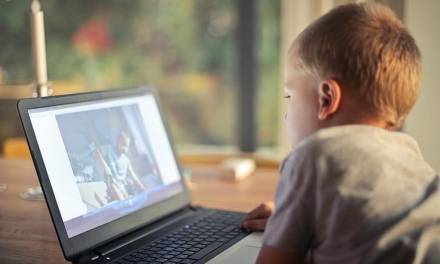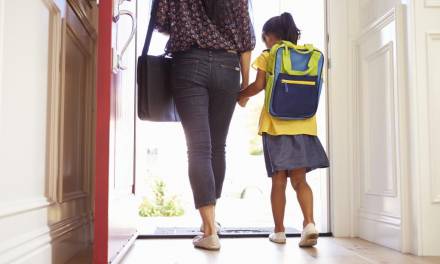According to the government’s ‘Working Together to Safeguard Children‘ white paper: nothing is more important than children’s welfare.
The system is designed to respond to the needs and interests of children and families, and how they work needs to run in partnership with other interested parties.
Schools play an essential role in protecting children from abuse, and with regular contact with young people they are in a strong position to identify signs of abuse and neglect. But with events such as severe flood and coronavirus affecting the country, increasingly schools are turning to home learning to ensure children still receive an education. But how can the school ensure pupils are still safeguarded whilst off-site? This blog post explains.
What is safeguarding?
According to Keeping Children Safe in Education guidelines (2019), safeguarding is defined as:
- protecting children from maltreatment;
- preventing impairment of children’s health or development;
- ensure that children grow up in circumstances consistent with the provision of safe and effective care;
- taking action to enable all children have the best outcomes.
Why is it important to safeguard children?
No one deserves to be abused whether it be physical, sexual or emotional abuse and no child or young person deserves to be neglected and we as a society have a duty to protect them from harm. Every child deserves to live without the fear of harm or abuse. If we protect children from harm they are more likely to grow up into confident members of society. Children with a disability are three times more likely to experience abuse and neglect and it’s up to us as practitioners to recognise the signs and symptoms to protect all children.
How your school can safeguard children
No single practitioner can have a full picture of a child’s needs and circumstances. If children and families are to receive the right help at the right time, everyone who comes into contact with them has a role to play in identifying concerns, sharing information and taking prompt action.
Schools play an essential role in protecting children from abuse. Your school can safeguard children (according to the NSPCC) by:
- Creating a safe environment for children and young people through robust safeguarding practices
- Ensure that adults working within the school do not pose a threat to children
- Ensure staff are trained and know how to respond to concerns
- Teach children and young people about staying safe
- Maintain an environment where children feel comfortable to approach any staff member if they have a problem
Personal, Social, Health and Economic (PSHE) education is a school subject through which pupils develop the knowledge, skills and attributes they need to manage their lives, now and in future.
These skills and attributes help pupils stay healthy, safe and prepare the for life and work in modern Britain.
Training staff in key areas such as Child Sexual Exploitation, gangs and county lines, staying safe online, peer on peer abuse, Female Genital Mutilation, modern slavery and trafficking is essential. All staff need to be equipped with the knowledge and skills of these prevalent safeguarding concerns so they can identify those at risk and put safeguarding measures in place.
Schools should consider incorporating contextual workshops for pupils based on the above concerns within PSHE lessons, giving students the skills to self-identify when they are at risk, and promote confidence in seeking help and support.
Milly Wildish, safeguarding expert and director of Keys to Safeguarding explains:
Schools that have robust safeguarding policies and procedures, complemented with effective training, supporting the message that safeguarding is everyone’s responsibility are in a much better place to fulfil their statutory duty to protect children from harm. Transparency of a school’s safeguarding policies and procedures provide pupils and parents the reassurance that safeguarding is a priority, staff are skilled to identify children at risk and any concerns a pupil raises will be listened to and acted upon.
What are the safeguarding requirement when the student is based off-site?
The Education and Inspections Act 2006 required schools to provide, by September 2007, full-time and suitable education from day six of a pupil’s fixed period exclusion. The provision could be located off site or in provision shared with other schools. Local authorities were required to make suitable arrangements for permanently excluded pupils from day six of the exclusion, replacing the expectation that they make provision from day 16. An alternative provision can also be provided due to illness.
Schools are responsible for the safeguarding of their pupils when they’re placed in an alternative provision. The new guidance says that schools should obtain a written statement from the provider that they have completed all the vetting and barring checks that are necessary on their staff.
All providers must have safeguarding policies and processes which should include:
- A robust process for all staff (including designated and safeguarding lead) to record any discussions or actions in terms of safeguarding concerns.
- A secure, individual safeguarding file. This should include all information and actions for identified safeguarding issues.
- The process identified for staff to pass on all safeguarding concerns to their designated safeguarding lead or provider manager.
- The process for which the safeguarding lead to refer all concerns to Children’s social care.
- Referring any child or young person not on school roll to the Children Missing from Education Team.
The benefits of eyes-on learning
A key tool in providing any documentation is to provide thorough and accurate information. When learners are off-site it can be difficult to obtain the information necessary to safeguard children, but EDClass+ from EDLounge Limited has various safeguarding protocols in place.
One of the benefits is eyes-on learning. Students can access the support mechanism instantly once they have accessed the online virtual classroom. With a webcam enabled, teachers can report any concerns they may see onscreen. Learners can also ask for assistance anytime via face to face, verbal chat, instant chat, written chat and questions and answer sessions.
All EDLounge staff are enhanced DBS checked and have received regular and extensive safeguarding training in how to safeguard children in practice.
EDClass+ offers 11,000 lessons with the aim of fully inclusive tailored learning. For more information, click here.









